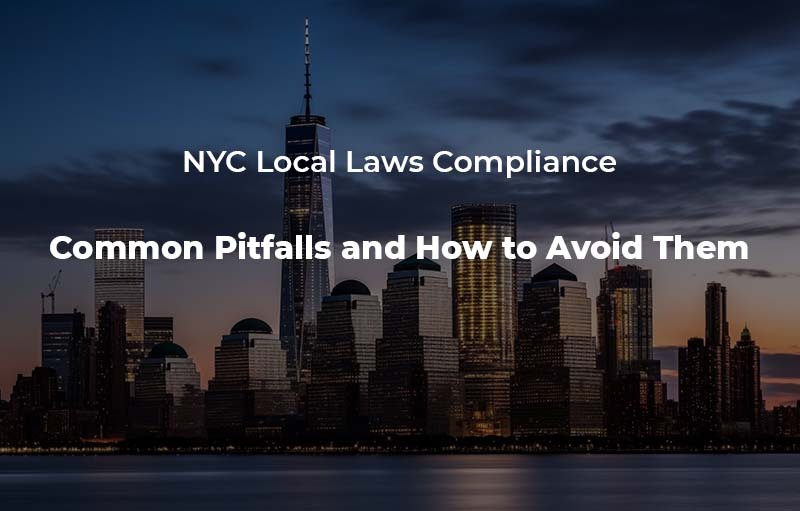
13 Oct NYC Local Laws Compliance: Common Pitfalls and How to Avoid Them
NYC Local Laws Compliance: Common Pitfalls and How to Avoid Them
New York City’s local laws pertaining to sustainability and energy efficiency are crucial steps towards a greener, more sustainable future. These laws, including NYC Local Law 87, Local Law 84, and the groundbreaking Local Law 97, set out to reduce carbon emissions and improve energy efficiency in the city’s buildings. While compliance is essential, it can be a complex and challenging process. In this blog post, we’ll explore some common pitfalls building owners and stakeholders may encounter and how to avoid them.
Inadequate Record-Keeping
One of the most common compliance pitfalls is not maintaining accurate and up-to-date records. Local laws often require comprehensive data on energy consumption and building systems. Without meticulous record-keeping, building owners can quickly fall out of compliance. To avoid this, consider implementing robust record-keeping practices and explore digital tools to streamline data management.
Failure to Benchmark
NYC Local Law 84 mandates benchmarking, which involves tracking and reporting a building’s energy and water usage. Failure to benchmark or incorrect reporting can result in fines and compliance issues. Engaging a professional consultant, like The Cotocon Group, can help ensure accurate benchmarking and submission of required data.
Delayed or Inadequate Energy Audits (LL87)
NYC Local Law 87 requires energy audits and retro-commissioning every ten years. Delaying these audits or conducting them inadequately can lead to non-compliance. It’s essential to schedule energy audits promptly and work with experienced professionals to identify and address energy efficiency opportunities in your building.
Ignoring Emissions Caps (LL97)
Local Law 97 sets strict carbon emissions caps for buildings and failing to meet these targets can result in hefty fines. Building owners must develop plans to reduce emissions and meet set limits. The Cotocon Group specializes in helping clients navigate the complex compliance requirements of LL97, ensuring they stay within emissions limits.
Misinterpretation of Regulations
Interpreting the intricacies of local laws can be challenging, and misunderstanding regulations can lead to non-compliance. Seek the guidance of professionals who are well-versed in NYC’s local laws and can provide clear explanations, helping you comply while avoiding common pitfalls.
Overlooking Available Incentives
NYC offers various incentives and rebates for sustainability projects. Failing to take advantage of these opportunities can be a missed chance to offset compliance costs. Working with consultants who understand these incentives can help you maximize your savings and sustainability efforts.
Conclusion
Compliance with NYC’s local laws is a critical step towards a more sustainable and energy-efficient city. However, navigating the complex regulatory landscape can be challenging. Building owners and stakeholders can avoid common compliance pitfalls by partnering with experienced sustainability consultants like The Cotocon Group, maintaining meticulous records, promptly addressing audits, and staying informed about available incentives. By addressing these challenges head-on, you can contribute to a greener, more sustainable NYC while avoiding unnecessary fines and penalties.
